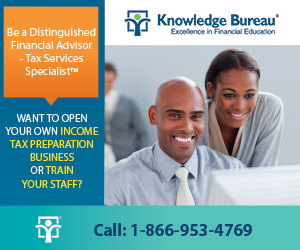Last updated: January 10 2017
Worried About Tax Troubles? Apply for Relief

New Year’s Resolutions often involve the purging of winter weight, weighty closets or weights on the mind, including the guilt of understating income or overstating expenses or credits on the tax return.
Personal trainers or friends can help with the first two goals, but when it comes to CRA, your most important ally is a tax specialist – an investment that can save you large amounts of time and money.
If you made an error or omission that the taxman can challenge, the penalties can be severe. Worse, they will mushroom with mach speed as the addition of interest, compounding daily and at four percentage points higher than the prescribed rate of interest, (currently 5%) fertilizes the penalty.
Penalties can also be stacked one upon the other: two layers of late filing penalties for repeat offenders, gross negligence penalties of 50% of taxes owing, tax evasion penalties of up to 200% of taxes owing, as well as a series of monthly penalties for overcontributions to RRSPs, RRIFs or TFSAs are possible.
That’s where the investment in an experienced tax specialist comes in. He or she will explain that when taxpayers voluntarily comply with the Income Tax Act (ITA) to correct errors and omissions on previously filed returns or to file omitted returns, enormous savings can result; money much better spent to keep you and your family smartly invested in the marketplace, or paying down post-holiday debt.
However, there is a specific process to be followed to do so. For example, CRA requires that before making such an application (using Form RC199), you must first be sure that relief from penalty provisions is possible. If so, interest relief is possible, too.
Remember, this process will only work in your favor, if your request is voluntary. That is, you cannot make post-assessment requests for penalty and interest relief. In certain cases, there is an alternative: a request can be made under fairness provisions, for example, in the case of severe hardship.
 |
In addition, a voluntary disclosure requires that the information is at least one year overdue, a penalty would indeed apply and the disclosure you make is complete, containing all relevant information. A voluntary disclosure will allow you to
- report taxable Canadian or foreign income received
- claim the right expenses or tax credits on the tax return
- in the case of employers, or parents paying nannies, remit employees’ payroll deductions
- report an amount of GST/HST, which may include net tax from a previous reporting period, rebates, unpaid tax, undisclosed liabilities, or improperly claimed refunds
No penalty relief is possible filing returns with no taxes owing or with refunds expected, returns required in the case of bankruptcy, a claim for elections, advance pricing arrangements or rollover provisions.
From a financial point of view at least, it’s probably best to get the CRA weight off your shoulders before you tackle those hips or gut. This is one New Year’s resolution that can put you back on track for tax efficient wealth building in 2017. After all, few circumstances can take you off your financial plan faster than trouble with the taxman.
Evelyn Jacks is President of Knowledge Bureau and author of 52 books including Family Tax Essentials – How to Build a Wealth Purpose with a Tax Strategy.





